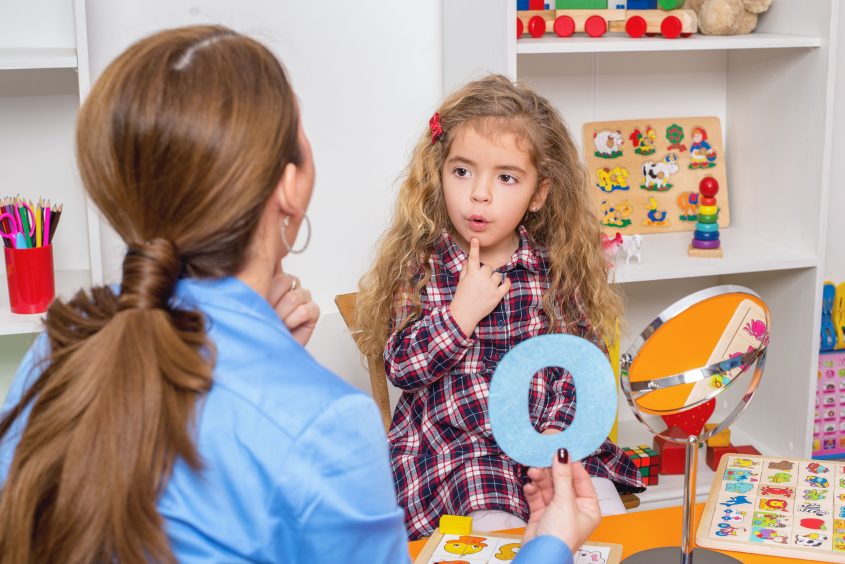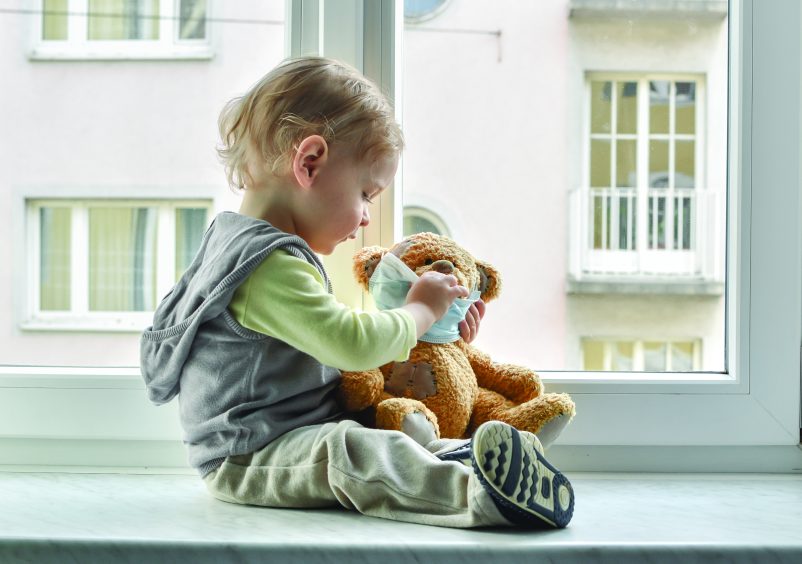
The unfolding legacy of lockdown on young Scots is driving support services into crisis, experts warn.
Mental health specialists in Scotland sounded a warning of looming emergency in frontline care as the pandemic’s impact on some of Scotland’s youngest and most vulnerable children is revealed.
Dr Laura Sutherland, vice-chair of the Child and Adolescent Mental Health Services (CAMHS) Faculty at the Royal College of Psychiatrists in Scotland, said the extent of lockdown’s legacy on young children is not yet fully known.
Writing in The Sunday Post, she said: “The pandemic has significant ongoing impacts on many babies’ and children’s wellbeing and development – including those born post pandemic – and on the ability of services to meet their needs. More under-fives are falling behind expected outcomes, and many services are reaching a crisis point where they are unable to identify or meet families’ needs.”
New school term
Frontline care services fear the start of the new school term has exposed more evidence of how the isolation and uncertainty of lockdown may have affected the development of some babies and toddlers while risking the welfare of others.
Nurseries and Primary One teachers report delayed development in speech and social skills, for example, while more four and five-year-olds are said to be showing symptoms of anxiety.
There are also concerns that because in-person home visits and health checks were curtailed during the pandemic, some children at risk of neglect or abuse may have slipped through the safety nets.
Nicola Killean, Scotland’s Children and Young People’s Commissioner, fears the lockdowns of 2020 and 2021 may have jeopardised a safe, happy and healthy childhood for many young Scots.
She said the pandemic not only caused a crisis in the rights of children.
She said: “Society still doesn’t fully understand the longer-term impacts on children of all ages, including babies born during the pandemic. It is starting to become clearer that there is increased need for specialist support – from speech and language to emotional support. Scotland’s recovery from the pandemic must be rights-based.
“Any child who needs extra support should have that provided by the state as the negative impacts of not doing so can be long-lasting in childhood and into adulthood.”
She said the United Nations Convention on the Rights of the Child (UNCRC), incorporated into Scots law this summer, would help bolster children’s protection to secure childhoods.
Killean said: “It enables children and families to hold the Scottish Government and public authorities accountable for any breaches in children’s rights.”
Increase in children with additional support needs
Councils have reported an increase in the number of children arriving at nurseries and primary school with additional support needs (ASN) in the years since lockdown. The biggest teachers’ union, the Educational Institute of Scotland, today warns rising ASN needs urgently demands extra resource.
Concern was echoed by Jane Malcolm, national operations manager of National Day Nurseries Association Scotland, who said pre-school staff are stretched to the limit. She said: “A higher level of children are presenting with additional support needs but the funding for settings is often limited, with different local authorities offering different levels of support.
“Children who are identified as having ASN do get support within the nursery from key workers and nurseries work closely with parents.”
Harvey Gallagher, chief executive of the Nationwide Association of Fostering Providers, warned of the damage done by “a perfect storm” of poverty and the pandemic.
He said: “Poverty was already affecting children and their families before Covid but the pandemic made things worse. There is a concern that we may have lost visibility of some children during the pandemic and are only now regaining sight of them.”
Inequality starts in early years education
By Anne Keenan, EIS Assistant Secretary
At the beginning of another school year, the profound impact of the pandemic on our youngest children is evident in nurseries and the early stages of primary school.
With additional support needs at an all-time high, our members continue to report children presenting with delayed development or with minimal speech and language acquisition.
On top of years of austerity an entire generation of children have missed out on many of the traditional social experiences that are part of early development.
Isolation during periods of lockdown from family such as grandparents, as well as the inability to attend playgroups and ELC settings, have affected the development of vital social skills, such as sharing and even how to play cooperatively.
This is not a short-term issue, but a widescale consequence of austerity, compounded by the pandemic which will take many years to overcome.
Early intervention to provide the support which our youngest children so urgently require has never been so important.
And yet, despite this, we have seen significant cuts to teacher numbers in our early years settings over the past decade, as well as underfunding of key allied professions, such as educational psychologists and speech and language therapists, with serious and damaging consequences for our youngest learners.
The Organisation for Economic Co-operation and Development’s Education At A Glance report, published this week, highlights deeply concerning inequalities prevalent throughout education systems, including Scotland’s.
It is clear that these inequalities start at the earliest stage of education, in early years.
We need substantial additional investment, including more teaching staff in early years if we are to combat the impact of the pandemic, coupled with the impact of poverty on children, and create a fairer, more equitable education system where all children have an equal opportunity to learn, thrive and achieve.
Closing schools had devastating effect on mental health of kids
By Dr Laura Sutherland, vice-chair of the CAMHS Faculty at the Royal College of Psychiatrists in Scotland
Our children and young people are still facing a mental health crisis caused by the pandemic.
As a psychiatrist, I’ve seen the devastating effect that school closures, disrupted social lives and uncertainty about the future has had on the mental health of our children and young people.
Many children struggled with anxiety and other common mental health problems, but it was more difficult to identify those in need of support as they had less contact with school, and reduced social contact.
Vulnerable children are often reliant on school meals, and the safeguarding of teachers and school staff. While vital support services were maintained for these children during the pandemic, they were the most affected by school closures and the withdrawal of vital support services.
The pandemic also has significant ongoing impacts on many babies’ and children’s wellbeing and development – including those born post pandemic – and on the ability of services to meet their needs.
More under-fives are falling behind expected outcomes, and many services are reaching a crisis point where they are unable to identify or meet families’ needs.
We know that intervention early in life and early in the development of mental health disorders can change the trajectory of children and young people’s lives for the better. This is especially true for the vulnerable children, who are the most at risk of falling behind.
Mental health services need to be funded to prioritise children affected by the pandemic.
In planning for another pandemic, or similar event, planning and guidance must consider keeping schools, and other educational settings and specialist support facilities, open for as long as is safe and practicable to do so.

Enjoy the convenience of having The Sunday Post delivered as a digital ePaper straight to your smartphone, tablet or computer.
Subscribe for only £5.49 a month and enjoy all the benefits of the printed paper as a digital replica.
Subscribe © Shutterstock / Savicic
© Shutterstock / Savicic © Supplied by EIS
© Supplied by EIS © Shutterstock / Aron M
© Shutterstock / Aron M